As a pediatrician and mom of 5, I understand how challenging it can be for parents to witness their children battling the common cold. Babies often can get sick more easily, as their tiny little bodies don’t quite yet have an immune system. Although it is difficult to see your little one sick, try not to stress as there are ways to speed up the recovery process!
In this blog, I’ll share seven proven strategies to help your little one bounce back from a cold with resilience and vitality.
1. Hydration is Key:
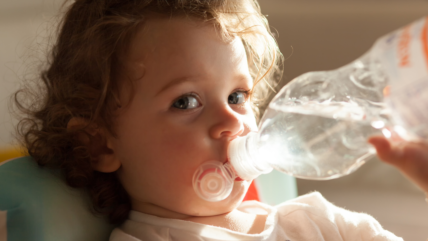
Babies, especially, can quickly become dehydrated when battling a cold. Due to their small size, they have a limited fluid reserve. Ensure your baby stays hydrated by offering breast milk or formula frequently. If your baby is eating solid foods, incorporate watery fruits like watermelon or pureed vegetables into their diet. Be cautious with water intake for newborns, consulting your pediatrician for guidance.
In addition to clear broths and herbal teas, consider using a pediatrician-approved electrolyte solution to replenish lost fluids. As with older children, avoid sugary drinks and caffeinated beverages for your baby.
2. Rest and Sleep:

Infants need even more sleep than older children, so prioritize their rest during a cold. Create a soothing bedtime routine for your baby, such as a warm bath or gentle lullabies. Ensure the sleep environment is comfortable, with appropriate room temperature and a clean crib.
For those restless nights, try gentle rocking or swaying to help your baby settle. Remember, babies often find comfort in being close to their parents, so consider co-sleeping or having the crib in your room if it helps your baby sleep better.
3. Nutrient-Rich Foods:
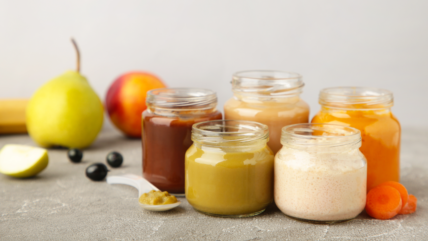
While solid foods might not be a primary source of nutrition for infants, breastfeeding or providing formula continues to be crucial during illness. Breast milk, in particular, adapts to your baby’s needs and provides essential antibodies.
If your baby is on solid foods, incorporate pureed fruits and vegetables rich in vitamins. Avoid introducing new foods during illness, and focus on providing familiar, nutritious options.
4. Nasal Saline Drops and Humidifiers:
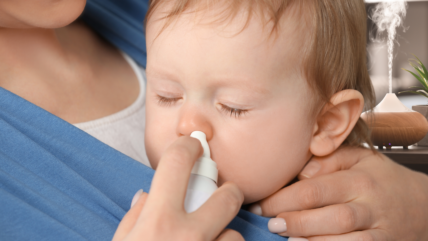
Nasal congestion is common in babies with colds, making saline drops a valuable tool. Use a bulb syringe to clear your baby’s nasal passages gently. Saline drops can be used before feeding or bedtime to ensure easier breathing.
A cool-mist humidifier in your baby’s room can help alleviate congestion and coughing. Ensure the humidifier is placed at a safe distance to prevent accidents, and clean it regularly following the manufacturer’s instructions.
5. Over-the-Counter Medications (When Appropriate):
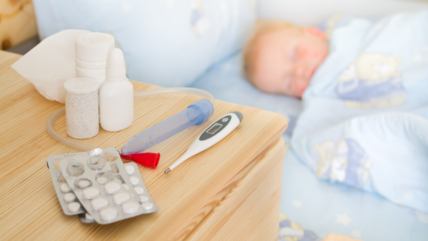
Consult your pediatrician before using any over-the-counter medications for your baby. Medications are generally avoided for infants under six months, and specific dosages depend on your baby’s weight and age.
Acetaminophen may be recommended to reduce fever and discomfort, but always adhere to your pediatrician’s guidance. Never administer aspirin to infants, as it may lead to Reye’s syndrome.
6. Promote Good Hygiene:
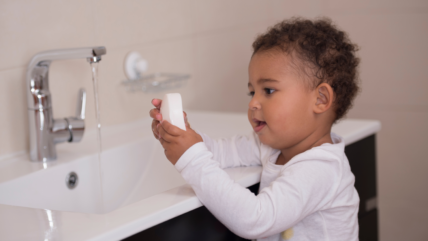
Teaching good hygiene habits to your baby involves frequent handwashing, even if they’re not yet mobile. Use a gentle baby soap and ensure thorough drying after washing. Keep your baby’s toys clean, especially if they have been in contact with them during illness.
Consider baby-friendly disinfecting wipes for surfaces your baby touches regularly. Be diligent in maintaining a clean environment to minimize the risk of spreading the cold to other family members.
7. Follow Up with Your Pediatrician:

Babies can’t communicate their discomfort as effectively, so it’s crucial to monitor their symptoms closely. If your baby’s cold persists or worsens, seek advice from your pediatrician promptly. They can assess your baby’s condition, provide tailored recommendations, and address any concerns you may have.
Remember, caring for a baby with a cold requires extra attention to their unique needs. Trust your parental instincts, and don’t hesitate to seek professional guidance if you’re unsure about your baby’s well-being. Your pediatrician is an essential partner in ensuring your baby’s health and comfort during this challenging time.
Caring for a baby with a cold is a delicate balance of tenderness, patience, and proactive measures. Remember that every child is a unique individual with distinct needs. Trust your instincts as a parent, and tailor these approaches to suit your baby’s specific requirements. In the face of your unwavering care, your baby will soon be back to their energetic, healthy self. The journey of parenthood is filled with challenges, and it is especially challenging to see your little one under the weather. I hope these tips help with a swift recovery!
If you have any questions or need help email me at support@drrosesbaby.com and Sign up to my Newsletter.
Grab your Free Baby Guides here!
Recommended blog: A Pediatrician’s Prescription for Managing Stress as Parent





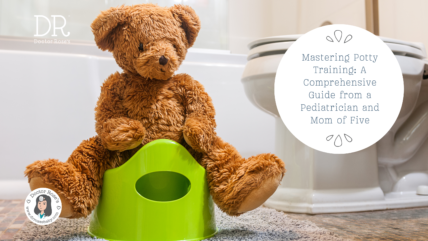





Leave a Reply
You must be logged in to post a comment.